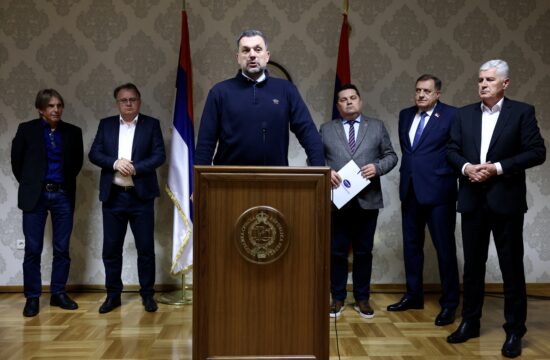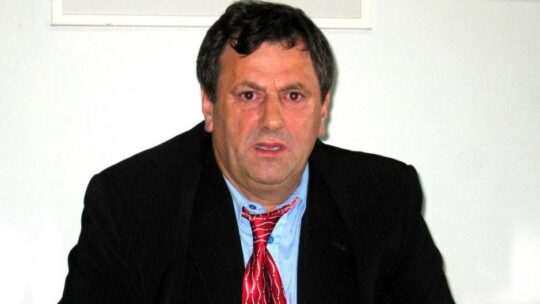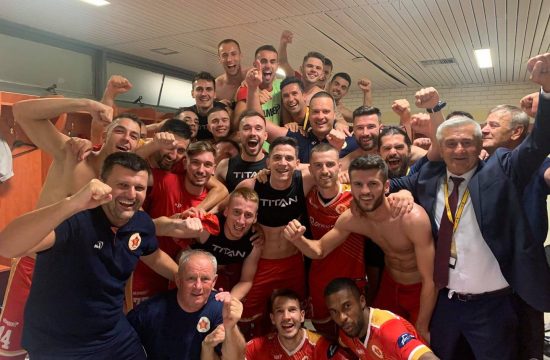Hundreds of thousands of viewers who watched N1 program over the past years via state owned BH Telecom's Moja TV national frequency platform are losing the opportunity to watch the N1's highly recognizable content based on investigative journalism and they will also be deprived of election debates and election night program on N1.
N1 is CNN’s exclusive partner for BiH and the region, it is the current record holder for a number of live shows, and the journalists of N1 BiH are the winners of numerous domestic and international awards for quality and professional work. N1 is not only the most watched news television but also the most watched cable channel.
The contract between the United Media company, as the owner of N1 television, and the public company BH Telecom expires on August 31, and negotiations on extending the contract are coming to an unsuccessful end.
BH Telecom management’s announcement that it will drop N1 from its cable TV offer comes at a time before the start of the General Elections campaign in BiH, which raises many doubts and especially questions about who and why is interfering with the freedom and independence of N1 television and press freedom in general. Of particular importance at this time is the fact that the management of BH Telecom are high-ranking members of the ruling Democratic Action Party (SDA) and the current general manager of BH Telecom, Sedin Kahriman, is also the president of the party's Sarajevo’s municipal board. He is a close associate of party leader Bakir Izetbegovic and his wife Sebija Izetbegovic.
While planning to switch off the signal of the independent international television station N1, BH Telecom is adding Telekom Serbia’s channels, owned by the Serbian state, to its cable offer, for which it allocates millions.
The European Union's office in Sarajevo has joined the comments on this development, saying that this would be a “loss for all BiH citizens.”
“Freedom of the media, including media pluralism, is an indispensable part of any democratic society, as confirmed in the Charter of Fundamental Rights of the European Union,” said spokesperson Ferdinand Koenig.
“N1 is one of the reliable BiH news sources and its exclusion from the BH Telecom package of channels is a loss for all BiH citizens who take an interest in independent news,” he added.
Previously, the embassies of the US, the UK as well as the OSCE Mission and the Office of the High Representative commented on the matter, expressing their support to media pluralism and freedom of media in Bosnia and Herzegovina.
Bosnia and Herzegovina, as a country in transition, politically and economically, ranks 38 out of 100 when it comes to democracy percentage.
National Democratic Governance rating declined from 2.00 to 1.75 due to the gravest secession crisis in the country’s independent history and constant institutional dysfunction sowed by domestic political actors.
According to the new World Press Freedom Index by Reporters Without Borders (RSF) published recently, ranking Bosnia and Herzegovina in the 67th place out of 180 when it comes to press freedom taking ‘safety’ in consideration as the greatest issue so far: Journalists are most often subject to verbal threats and attacks as well as occasional physical assault. Journalists generally do not feel sufficiently protected while doing their job and do not trust the police for their protection. There are various initiatives to improve the safety of journalists focused on improving legislation and the work of the prosecutor's office.
Reporters Without Borders are considering N1 as one of the two most important media in the country.
Media landscape
The country has a very fragmented media market with about 40 TV stations, 150 radios, several daily newspapers and news agencies, almost 200 magazines and other periodicals, and about 600 web outlets. Paradoxically, such a large number of media does not imply true pluralism of information and opinions. The televisions N1 and Al Jazeera Balkans belong to the most important media.
N1 being dropped from state owned frequency decision comes days before the start of elections campaign, accidental or premeditated?




